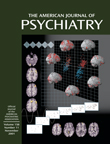Few would argue with the proposition that increasing numbers of medical and mental health professionals find themselves involved in the legal system. Wittingly or unwittingly, doctors may find themselves serving as witnesses in civil or criminal proceedings. One may end up in court as a result of having provided medical or mental health services to a litigant. Or one may more deliberately engage with the legal system as an expert consultant or witness. In either case, the legal arena is fraught with opportunities and risks for the nonlegal professional. Because of threats to one’s license and malpractice insurance, the old adage “forewarned is forearmed” is fitting for the physician facing a court appearance. Fear of injury in the legal arena is not, of course, the only reason for training and competence in the area. Work as a forensic expert is both professionally satisfying and lucrative.
Reflecting the trend of increasing medical and mental health involvement in the courts, a plethora of books has been published in the last decade. These publications tend to provide varying quality and coverage of the subject matter. Ethics in Forensic Science and Medicine provides a comprehensive and in-depth treatment of laws, rules, procedures, and illustrative case material for the expert consultant/witness. It is not a book about professional ethics and risk management in general medical or mental health practice. The book addresses the issue of expert testimony across the full gamut from selection of an expert, legal rules and regulations governing expert testimony, ethical practice, the attorney-expert relationship, business and contractual arrangements, standards for the admissibility of testimony, report writing, and professional and ethical conduct. The area of business and contractual relations is especially detailed and rightly so. A poorly arranged retainer contract or inappropriate fee arrangement can set the expert witness up for damaging attacks on his or her credibility later in the case or failure to be properly compensated.
The book provides a full treatment of the attitudes, practices, and qualifications of medical and mental health expertise in the legal arena. The book devotes several chapters to content areas, including forensic aspects of alcoholism and drug abuse, brain injury, photographic evidence, and a review of the infamous O.J. Simpson trial. Current standards for the admissibility of scientific evidence are also reviewed in detail. Physicians appearing in court who expect judges, attorneys, and juries to accept opinions based on medical authority may be set up for a rude, ego-bruising awakening. Post-
Daubert v. Merrill-Dow Pharmaceuticals,
Inc. (1), criteria for admissibility of scientific evidence are now the standard in federal and some state jurisdictions. Finally, the last chapter outlines the code of professional conduct of the National Forensic Center. This guide provides a framework for avoiding hazards and missteps and promoting high-quality expert witness services. Although
Ethics in Forensic Science and Medicine is not a substitute for proper training and established competence, it provides comprehensive and in-depth coverage, integrating the wide range of issues within the covers of a single volume.

